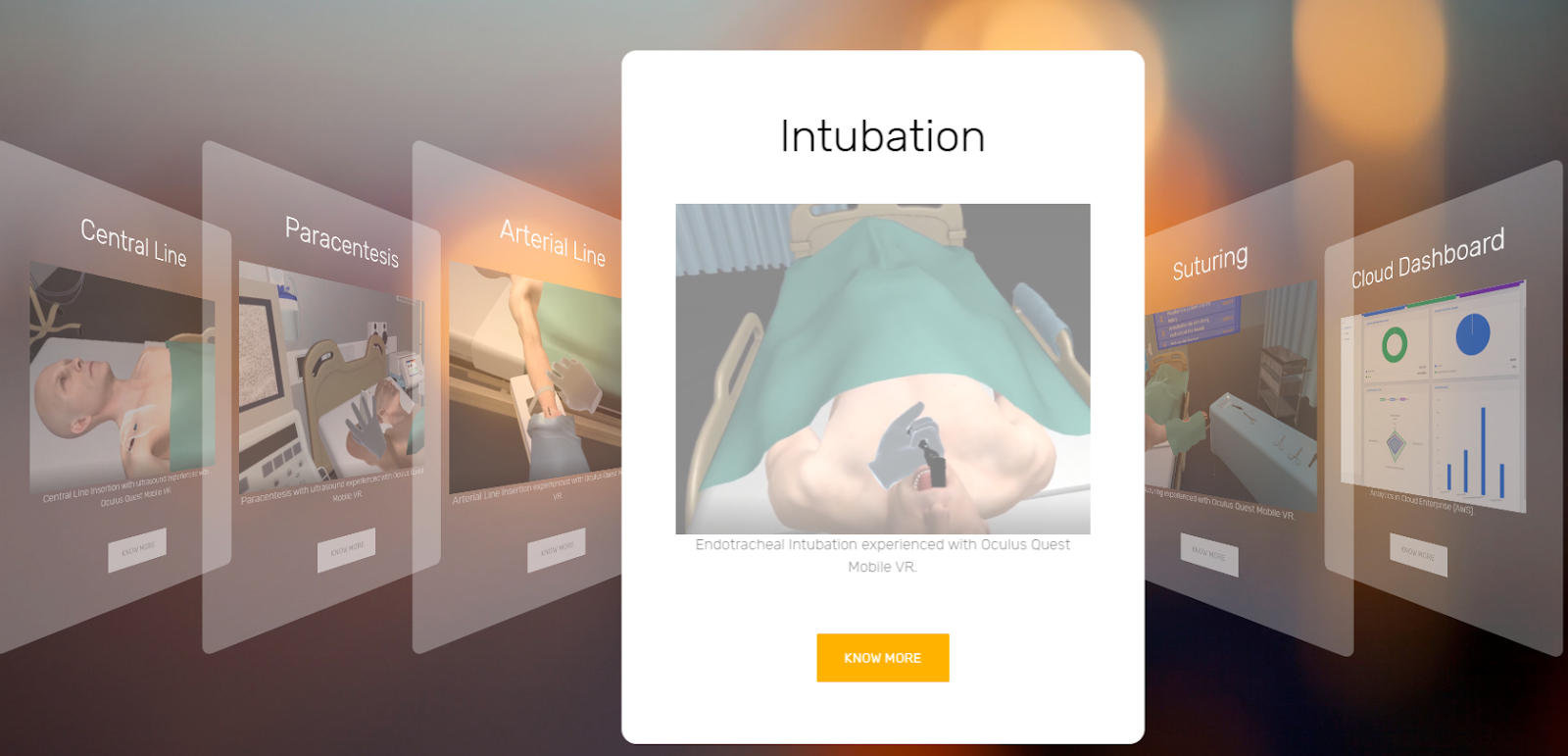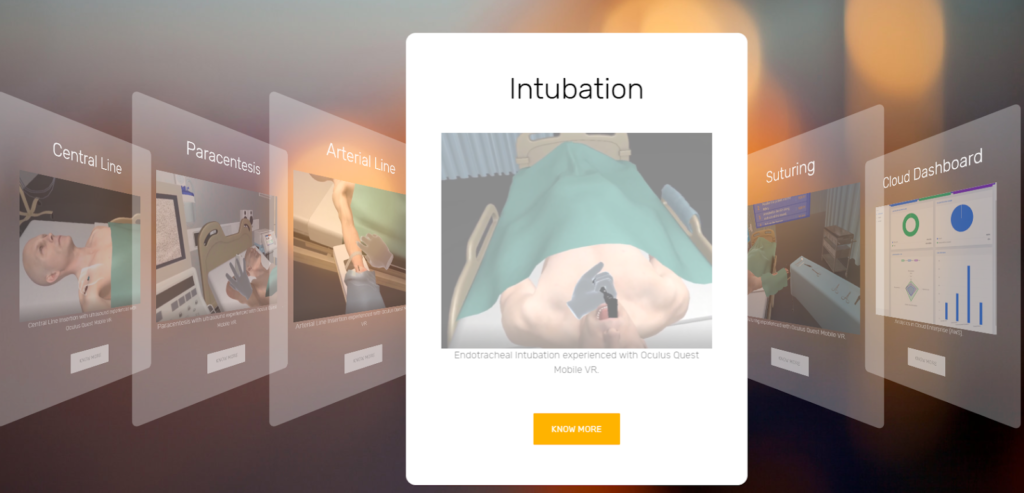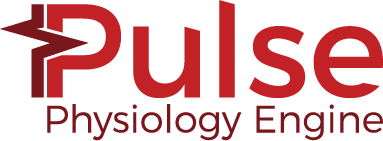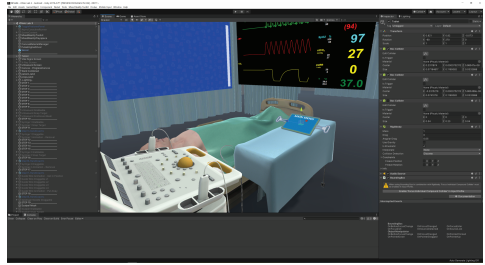Kitware Supports inciteVR with Their First Product Release Featuring Immersive Learning

Introduction
The Clinic Immersives NP Skills Labs Enterprise allows nurse practitioner (NP) students to develop clinical lab skills using their own affordable Oculus Quest mobile VR. With this tool, students have unlimited access to perform virtual procedures anywhere at any time. This product also features hand tracking inputs that allow students to practice in either guided or expert modes.

The Company: inciteVR

The team at inciteVR has been pioneering the production of immersive game-based learning and simulations since 2016. When the opportunity presented itself, the principals at inciteVR chose to form a venture to pursue their vision for moving the discipline of immersive learning forward.
With offices in Portugal and California, inciteVR has formulated the Immersive Learning Experience Production Pipeline (ILXP) to design, develop, deploy, support, and research immersive learning.
Need: Why inciteVR Chose Pulse
At the start of their design process, inciteVR was looking for the best strategy to incorporate patient vital sign data into their immersive simulation. During their search for available frameworks, they found Kitware’s open source Pulse Physiology Engine.

The Pulse Physiology Engine is a series of numerical models that are physics-based, calculate in real-time, and respond to user-interaction to dynamically calculate the patient’s response to trauma, disease, and treatment. This easy-to-use platform provides human physiology feedback that improves the realism of training, enhancing the training experience. inciteVR immediately recognized the positive impact this would have on their product.
Early in the integration process, the team at inciteVR realized that the Pulse Engine Unity Asset available on the Unity Asset Store did not support the Oculus Quest. They immediately reached out to Kitware via the Pulse discourse site. Aaron Bray, the lead software developer for Pulse, quickly reached out to help. Kitware and inciteVR worked together to debug the issues and within two days had a working Android build ready to use. These updates are now available in the open source Pulse Engine Unity Asset.
The Pulse Physiology Engine has been integrated into inciteVR’s entire enterprise system. All of the patient’s vital signs are derived from the engine and are accurately displayed in a holographic panel, which they adapted from the Pulse Engine Unity SDK. The engine also updates the patient’s vital signs based on the different procedures completed by the user.

The video below shows the training module in action. The vital sign monitor was customized from the Pulse Unity Asset and shows the real-time patient feedback as calculated by the Pulse Physiology Engine.
Summary
The Pulse Physiology Engine’s virtual patient modeling is transforming the immersive learning enterprise for nurse practitioner clinical skills education. As inciteVR CEO Jim Kiggens commented, “Kitware’s Pulse Physiology Engine allows us to bring the ‘story’ of the virtual patient to life with real-world case data.”
For more information about this product and how Pulse is integrated, we encourage you to read the white paper written by inciteVR with the support of Kitware and the School of Nursing at Purdue.
To learn more about how Kitware’s collaborative work, please read the “Kitware Customer Highlight” series. To learn more about the Pulse Physiology Engine and how we can help you build a custom application, please visit the Pulse site or contact us at kitware@kitware.com.
The Pulse Engine rocks! We have a slate of new features planned that are enabled by Pulse. And, Kitware’s support is amazing.